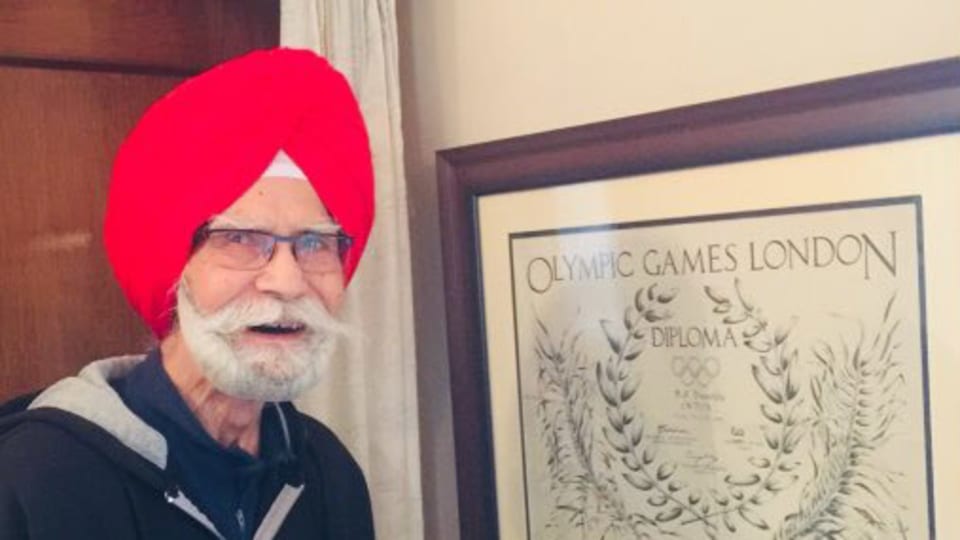Why the gold at London 1948 was extra special for Balbir Singh Sr.
The first Olympic gold post-independence meant much more than a celebration of a great team, it was a moment that helped a ravaged nation believe.

Indian hockey legend Balbir Singh Dosanjh, who passed away on Monday morning after spending two weeks in hospital, competed in three Olympics – 1948, 1952 and 1956 – and won gold at each of them.
However, the first of those – London 1948 – is the one he considered the most special of them all, even though the 1956 team scored 38 goals without reply and were christened ‘The Invincibles’.
But 1948 held extra significance, not just because it was the first gold for India as an independent nation, but also because of all the events off-field in the year leading up to the Games.
A state torn apart
Balbir Singh Sr. was born in the undivided state of Punjab pre-independence and had joined the Sikh National College in Lahore, a city now located in modern-day Pakistan, on a scholarship.
He eventually moved to Khalsa College in Amritsar, in modern-day India, but still played for the Punjab state team, a side that was split down the middle when the India-Pakistan partition happened amidst the Independence movement.
The first of those happened in 1946 when the yet-undivided state of Punjab reeled from terrible inter-community riots. It had created ripples across the state, but the worst was yet to come.
In April 1947, Balbir Singh Sr. and Punjab captain AS Dara had returned to Lahore after winning the national title for the second consecutive year, the striker being the top-scorer on both occasions, and everything seemed normal on the surface.
But he could feel something brewing. “There were many stops we made while he (Dara) was congratulated by people he knew. But on no occasion did he introduce me. I was made to wait outside the gates of the neighbourhoods,” he had told ESPN in an interview.
“It was a strange feeling. They were probably already thinking of partition. I never knew.”
He soon moved to Ludhiana in Indian Punjab with his wife, whose family lost everything when they shifted, and Balbir Singh Sr. himself lost several of his Punjab teammates who chose to settle in Pakistan.
The then 24-year-old, an officer with the Punjab Police, was also the first responder to a lot of violent atrocities in Ludhiana.
After one particularly bad incident, Balbir Singh Sr. and his force returned to their posting, and when the former asked his men to unload their weapons, one of them fired a bullet accidentally, one that passed through the then officer’s turban.
It was a bad time, but Balbir Singh Sr. was to taste redemption soon.
The John Bennett story
After forcing his way through to the Indian hockey team to travel for the 1948 Olympics, Balbir Singh was surprised to be greeted by a former quandary upon landing in London.
Naval Tata, the then Hockey Federation chief had the team flown out to London so they had enough time to practice and the visiting party was welcomed by Sir John Bennett at the Heathrow airport.
This was the same man who had ‘arrested’ Balbir Singh Sr. a few years back to force him to play for the Punjab Police, an offer he refused since they were loyal to the British at the time.
“When I saw him, I was worried,” the legend said. But his fears turned out to be unfounded. “He said it was so good to see me. He smiled and then he hugged me.”
"He told me, 'Balbir, the grounds in England are very heavy. So you have to run hard with the ball. They are not hard like in India. So you can't just hit the ball here.' He told me to tell my teammates," recalled Balbir Singh Sr.
The centre-forward would go on to score eight goals in all – six against Argentina in his Olympics debut, and then two in the final against Great Britain, in front of 25,000 spectators at Wembley stadium.
It was the proudest moment of his life and with it, he had not only fulfilled his own dream but also had proved his freedom fighter father, Dalip Singh, right.
“As a child, I used to ask my father what independence meant and what we would get out of it. He’d reply that independence would give us our own identity, flag and pride forever,” he had told the Hindustan Times.
